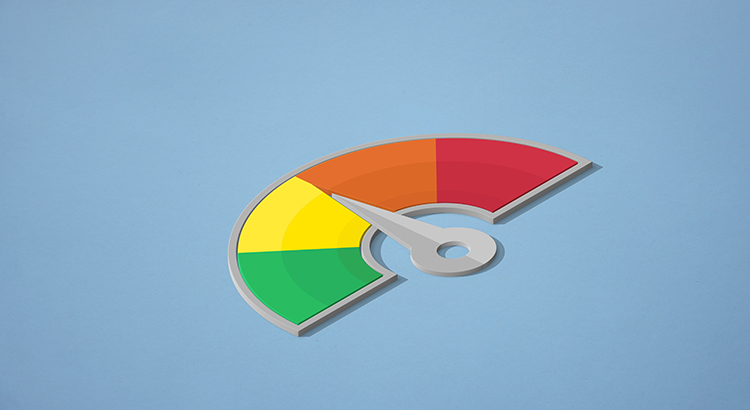With affordability challenges today, prioritizing ways you can have a positive impact on your credit score could help you get a better mortgage rate. If you want to learn more, let’s connect.
If you’re thinking about buying a home, you should know your credit score’s a critical piece of the puzzle when it comes to qualifying for a home loan. Lenders review your credit to assess your ability to make payments on time, to pay back debts, and more. It’s also a factor that helps determine your mortgage rate. An article from Bankrate explains:
“Your credit score is one of the most important factors lenders consider when you apply for a mortgage. Not just to qualify for the loan itself, but for the conditions: Typically, the higher your score, the lower the interest rates and better terms you’ll qualify for.”
This means your credit score may feel even more important to your homebuying plans right now since mortgage rates are a key factor in affordability, especially today. According to the Federal Reserve Bank of New York, the median credit score in the U.S. for those taking out a mortgage is 765. But, that doesn’t mean your credit score has to be perfect. An article from Business Insider explains generally how your FICO score range can make an impact:
“. . . you don’t need a perfect credit score to buy a house. . . . Aiming to get your credit score in the ‘Good’ range (670 to 739) would be a great start towards qualifying for a mortgage. But if you’re wanting to qualify for the lowest rates, try to get your score within the ‘Very Good’ range (740 to 799).”
Working with a trusted lender’s the best way to get more information on how your credit score could factor into your home loan and the mortgage rate you’re able to get. As FICO says:
“While many lenders use credit scores like FICO Scores to help them make lending decisions, each lender has its own strategy, including the level of risk it finds acceptable. There is no single “cutoff score” used by all lenders and there are many additional factors that lenders may use to determine your actual interest rates.”
If you’re looking for ways to improve your score, Experian highlights some things you may want to focus on:
- Your Payment History: Late payments can have a negative impact by dropping your score. Focus on making payments on time and paying any existing late charges quickly.
- Your Debt Amount (relative to your credit limits): When it comes to your available credit amount, the less you’re using, the better. Focus on keeping this number as low as possible.
- Credit Applications: If you’re looking to buy, don’t apply for other credit. When you apply for new credit, it could result in a hard inquiry on your credit that drops your score.
When you’re ready to start the homebuying process, a lender will be able to assess which range your score falls in and tell you more about the specifics for each loan type.
Credit scores play a crucial role in the homebuying process in Connecticut, as they do in many other parts of the world. They are used by lenders to assess the creditworthiness of borrowers and determine the terms of a mortgage loan. Here’s what Connecticut homebuyers need to know about credit scores:
- Importance of Credit Scores: Credit scores are numerical representations of an individual’s creditworthiness based on their credit history. They provide lenders with an objective measure of the borrower’s ability to repay debts. A higher credit score generally indicates a lower risk borrower, making it easier to secure a mortgage loan and potentially qualify for better interest rates.
- FICO Score: The most commonly used credit scoring model is the FICO score, developed by the Fair Isaac Corporation. FICO scores range from 300 to 850, with higher scores indicating better creditworthiness. Lenders in Connecticut typically consider FICO scores when evaluating mortgage loan applications.
- Credit Score Factors: Several factors contribute to the calculation of credit scores. The key components include payment history (35% weightage), amounts owed (30% weightage), length of credit history (15% weightage), credit mix (10% weightage), and new credit (10% weightage). Maintaining a history of on-time payments, keeping credit card balances low, and having a diverse credit mix can positively impact credit scores.
- Minimum Credit Score Requirements: The minimum credit score required to qualify for a mortgage loan varies depending on the type of loan and the lender. In Connecticut, conventional loans typically have stricter requirements, often requiring a minimum credit score of 620 or higher. Government-backed loans, such as FHA loans, may have more lenient credit score requirements, often accepting scores as low as 580.
- Credit Score and Interest Rates: Credit scores significantly influence the interest rates borrowers can obtain. Higher credit scores generally result in lower interest rates, potentially saving homebuyers thousands of dollars over the life of their mortgage. Even a small difference in interest rates can have a substantial impact on monthly mortgage payments and long-term affordability.
- Improving Credit Scores: If homebuyers have lower credit scores, it’s important to take steps to improve them before applying for a mortgage. This may involve paying bills on time, reducing credit card balances, avoiding new credit applications, and checking credit reports for errors or discrepancies.
- Credit Monitoring: Regularly monitoring credit scores and reports is essential for Connecticut homebuyers. It helps identify any issues, inaccuracies, or fraudulent activity that may impact credit scores negatively. Many credit bureaus and online services provide free or paid options for monitoring credit scores and reports.
- Pre-Approval Process: Prior to searching for a home, homebuyers can benefit from getting pre-approved for a mortgage. Pre-approval involves a lender assessing the borrower’s creditworthiness, income, and other financial factors. This process gives homebuyers a clearer understanding of their purchasing power and allows them to make competitive offers when they find a property they want to buy.
Understanding credit scores and taking proactive steps to maintain or improve them is crucial for Connecticut homebuyers. It not only increases the likelihood of securing a mortgage loan but also plays a significant role in obtaining favorable interest rates, potentially leading to long-term savings.

Steve Schappert Founded, and is the broker at Connecticut Real Estate, Schappert owns The Connecticut Art Gallery and Home & Art Magazine Steve also designed, built, and shipped a zero-energy double-walled home to Germany. Schappert is an abstract painting artist and has painted, renovated and provided energy audits for over 1300 homes.
When it comes to real estate, construction and energy efficiency, Steve Schappert is one of the most sought-after experts in the field. With more than 40 years of experience in these areas, he has become a trusted source for reporters looking for insights on the industry. From helping develop net-zero homes to advising on sustainable building practices, Schappert’s knowledge and expertise is unrivaled. Whether it’s for a news article or an in-depth magazine story, reporters turn to Steve Schappert as a reliable source of information. With his expertise and guidance, they can ensure that their stories are accurate and up-to-date.
In the last year I have been interviewed by ABC News Manhattan, Connecticut Magazine and featured in 2 articles in The Washington Post.
If you are looking for a creative broker that thinks outside the box and has been a recognized expert for over 30 years call or text 203-994-3950



